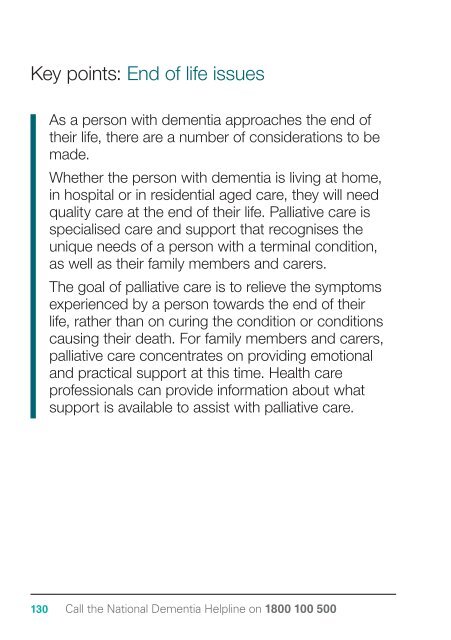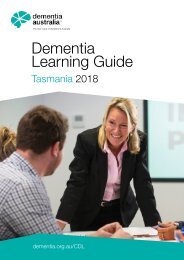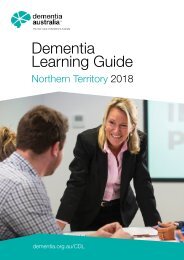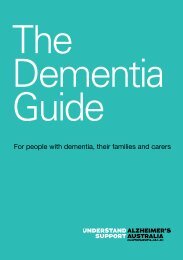Dementia Australia | The Dementia Guide
The Guide will also be used by the family and friends of someone with dementia, as it will contain information for anyone taking on a caring role. It will help people to understand more about dementia and the emotional impact of a diagnosis, the available drug treatments, and support and services that are available. It will include information about living well with dementia and about making plans for the future.
The Guide will also be used by the family and friends of someone with dementia, as it will contain information for anyone taking on a caring role. It will help people to understand more about dementia and the emotional impact of a diagnosis, the available drug treatments, and support and services that are available. It will include information about living well with dementia and about making plans for the future.
Create successful ePaper yourself
Turn your PDF publications into a flip-book with our unique Google optimized e-Paper software.
Key points: End of life issues<br />
As a person with dementia approaches the end of<br />
their life, there are a number of considerations to be<br />
made.<br />
Whether the person with dementia is living at home,<br />
in hospital or in residential aged care, they will need<br />
quality care at the end of their life. Palliative care is<br />
specialised care and support that recognises the<br />
unique needs of a person with a terminal condition,<br />
as well as their family members and carers.<br />
<strong>The</strong> goal of palliative care is to relieve the symptoms<br />
experienced by a person towards the end of their<br />
life, rather than on curing the condition or conditions<br />
causing their death. For family members and carers,<br />
palliative care concentrates on providing emotional<br />
and practical support at this time. Health care<br />
professionals can provide information about what<br />
support is available to assist with palliative care.<br />
130 Call the National <strong>Dementia</strong> Helpline on 1800 100 500












